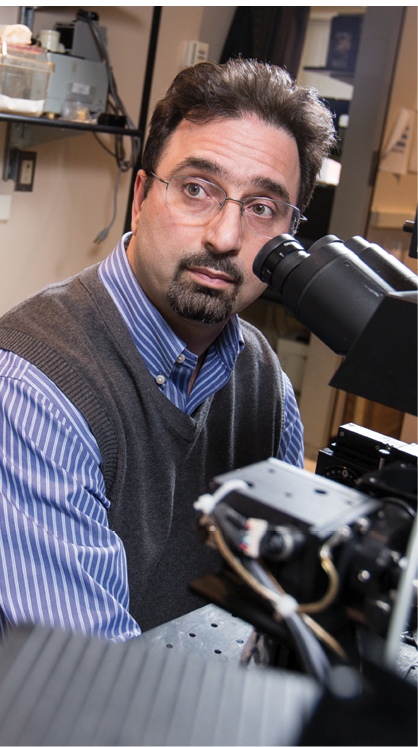
Error: No layouts found

Einstein has named Kamran Khodakhah, Ph.D., as chair of the Dominick P. Purpura Department of Neuroscience. He has been interim chair since 2013.
Dr. Khodakhah will be a leader of the Brain Science Initiative, which will reinvest in and reinvigorate brain research at Einstein and Montefiore. The initiative will spur a range of investigations led by researchers from clinical and basic science departments at the institutions. Research programs will focus on fundamental neurosciences and a wide range of diseases, from autism and neurodegenerative disorders to addiction and obesity.
Searches are now under way for chairs of neurosurgery and of psychiatry and behavioral sciences. These chairs are expected to play important roles in this initiative, which will include establishing a Montefiore Einstein Center of Excellence in Neuroscience.
“These are exciting times for brain research,” says Dr. Khodakhah. “Einstein has a long and storied history in neuroscience excellence and is home to a cadre of internationally recognized leaders in the field. I look forward to expanding our department, fostering collaborations among basic science, translational and clinical investigators and departments and building Einstein and Montefiore into a preeminent center for brain research.”
Dr. Khodakhah, who also holds a Harold and Muriel Block Chair in Neuroscience, joined the Einstein faculty in 2001 as an assistant professor of neuroscience. He became a full professor in 2007 and later received appointments in the Saul R. Korey Department of Neurology and the department of psychiatry and behavioral sciences, where he is now vice chair of research.
The Khodakhah laboratory studies the role of two brain regions, the cerebellum and basal ganglia, in motor coordination and movement disorders such as ataxia (uncoordinated movement) and dystonia (involuntary muscle contraction). He and his colleagues combine basic science and clinical approaches, including behavioral studies, electrophysiology, genetics and optogenetics. Dr. Khodakhah received his first independent research grant from the NIH in 2001 and has been continuously funded since then.
An active member of the scientific community, Dr. Khodakhah has chaired or been on the roster of six different NIH study sections. He has been on grant review boards for the Wellcome Trust (U.K.), the Italian Teleton Foundation, the Japan Science and Technology Agency, the Dystonia Medical Research Foundation and the Agence Nationale de la Recherche (France), among others.
In 2007, Dr. Khodakhah received Einstein’s LaDonne H. Schulman Excellence in Teaching Award.